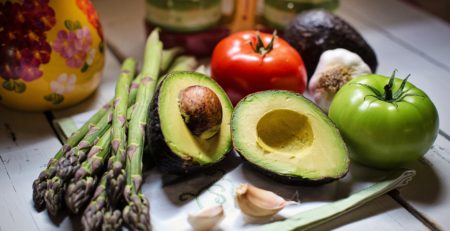The nutritional benefits of fermented foods
In recent years, the attention paid to fermented foods has increased considerably, mainly because they are increasingly classified as “functional foods”defined by the European Commission Concerted Action on Functional Food Science in Europe (FUFOSE) as “foods that demonstrate a beneficial effect on one or more specific functions of the body, beyond nutritional effects, which improve health and well-being and/or reduce the risk of disease”.
This is mainly due to the presence of microorganisms defined as “probiotics”, compounds called “bioactive” and substances considered “prebiotics”.
In particular, by “probiotics” we mean microorganisms capable of overcoming the barriers of the gastrointestinal tract (high acidity, bile salts and enzymes), and arriving alive and vital in the intestine, colonizing it, provided that they are present in food matrices in adequate quantities, i.e. with a minimum cell density of 107 UFC/g until the end of the commercial life of the product. Some of the beneficial effects associated with the consumption of these products can be:
- improvement of intestinal functions (including microflora balance, immune activity, bioavailability of nutrients, intestinal transit motility);
- the slowing down of cellular aging (oxidative stress) by fighting free radicals, through the integration of antioxidants (polyphenols, carotenoids, flavonoids, vitamins);
- the strengthening of the immune defences.
The category called “bioactive compounds“, on the other hand, corresponds to innumerable molecules that are synthesized or made bioavailable following the various metabolic pathways activated by microorganisms for their survival. Examples of this can be:
- Bioactive peptides, which possess antihypertensive (for example by promoting inhibition of angiotensin converting enzyme) and antioxidative properties;
- Synthesized exopolysaccharides, which, in addition to contributing to the organoleptic properties such as texture and flavour, are characterized by hypocholesterolemic, antioxidant and antimicrobial activities;
- Short-chain fatty acids, which protect against diseases such as colon cancer and inflammatory bowel disease (Crohn’s disease and ulcerative colitis), inhibiting the growth of pathogenic bacteria, modulating cholesterol and lipid metabolism and providing benefits to the colonic epithelium.
Finally, “prebiotics” are substances capable of selectively promoting the growth and metabolic activity of one or more bacterial species considered beneficial for the health of the host itself, promoting the absorption and therefore the bioavailability of some microelements such as calcium and magnesium and positively influencing cholesterol metabolism.
From tradition, many foods are now considered functional. So let’s see below which of these are the most popular.
- Kombucha, a tea fermented by acetic acid bacteria and yeasts combined in a cellulose matrix called SCOBY: it is a source of bioactive compounds which include organic acids and amino acids, vitamins, probiotics, sugars, polyphenols and antioxidants.
- Kefir, a fermented milk-based drink from a pool of lactic acid bacteria and yeasts also syndicated in a polysaccharide matrix which gives the typical granular conformation: it promotes intestinal balance and the functioning of the immune system, provides numerous vitamins and minerals and helps control cholesterol levels.
- Natto, a stringy soy food fermented by Bacillus subtilis: contains a number of essential nutrients and bioactive compounds, such as nattokinase, soy isoflavones, γ-polyglutamic acid, vitamin K2 and biogenic amines and has various therapeutic potentials due to its antioxidant, antidiabetic and hypolipidemic properties.
- Miso, a cream with a very strong umami flavour, fermented by Aspergillus oryzae, on which an epidemiological study was conducted which revealed that people who consume it daily report a lower risk of developing stomach cancer and heart disease , as well as having antidiabetic, antioxidant, anti-inflammatory and antihypertensive properties.
- Kimchi, a group of fermented pickled and spiced vegetable foods, which are associated with various beneficial functions including: reducing body fat, preventing constipation and colon cancer, reducing cholesterol, increasing fibrinolytic activity and finally having antioxidant effects.
The application of fermentation processes on food and beverages therefore has innumerable potential as the scientific community is increasingly unanimous in confirming that the positive impact exerted on the organoleptic characteristics and shelf life is increasingly confirming and rediscovering the impact on nutritional properties.
In this way this market is becoming increasingly flourishing and attractive for the choices of consumers, who are nowadays increasingly sensitive to the issue of nutrition and its active role in terms of well-being and the prevention of chronic diseases and aging.










